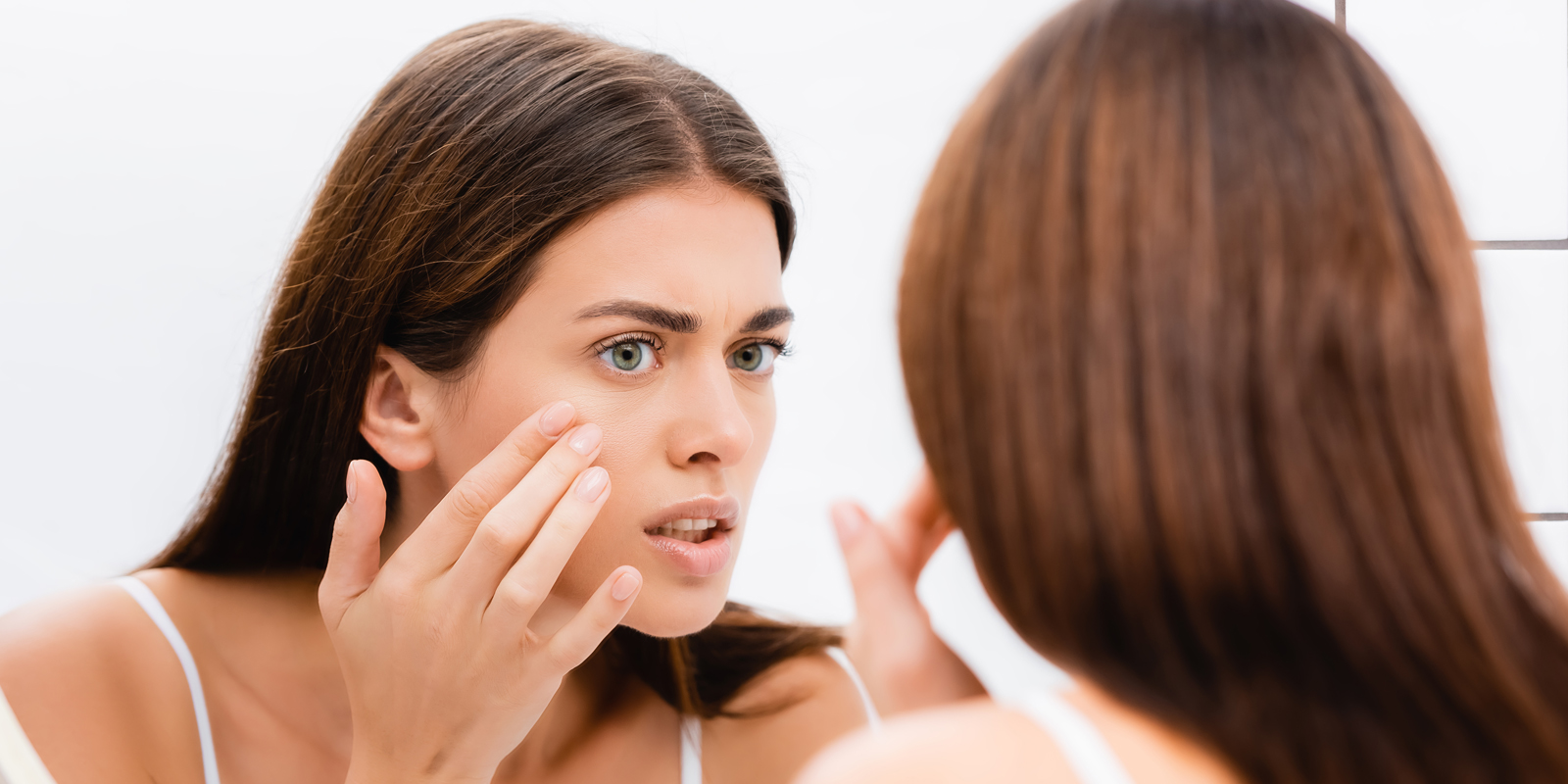The skin tends to be a literal manifestation of what is going on internally Stress might make us prone to hormone imbalances, and hormones have been linked with psoriasis, eczema and acne.
Being able to recognise warning signs for stress is important so that you can act accordingly: avoiding triggers of stress, engaging in de-stressors, and maybe even accessing therapeutic services.
Stress Causes
Stress triggers out-of-balance hormone levels that interfere with how our skin works. High levels of cortisol, the main stress hormone, can trigger oil production for some, leading to breakouts and exacerbating existing skin problems, such as rosacea, psoriasis or eczema. Cortisol also decreases skin moisture retention so we end up with parched, taut skin that can also stoke hyperpigmentation due to cortisol’s increase in production of tyrosine, an amino acid that can convert into melanin, creating dark spots or patches on our visages.
Brain-Skin Axis Along with the hormone effect on complexion, psychological stress increases the reactivity of skin cells; therefore, it could produce irritation and rash flares, or accelerate wear and tear of the skin that makes it appear older than its true age.
Stress Triggers
Stress can worsen underlying skin conditions such as eczema (dry, itchy, inflamed patches on the skin) or psoriasis (even more dry, scaly, and thickened reddish patches on the skin). In addition to worsening inflammatory conditions, stress can provoke other such inflammatory disorders like rosacea (red patches on the face as well as irritation of blood vessels or veins in the nearby area).
Stress can sensitise the immune system, such that you’re now overreacting to normal triggers – a sneeze or being cut up in traffic, for example. Among the common side-effects of stress-damaged skin: itchy, red and stingy skin; a dull complexion; rashes or hives; flaky or dry patches.
Stressors can also provoke other nervous habits such as picking or scratching at the skin, which can lead to bruises, scars and post inflammatory hyperpigmentation (darkened skin). Make sure that you are still trying to achieve your best outcome by sticking to your skincare programmes twice a day, at least, with noncomedogenic moisturisers and sunscreen every day.
Stress Reduction
Stress is a fact of daily life but you can take steps to mitigate its effect on your skin. The first thing you want to do is to identify specific triggers. If you don’t already keep a journal, it’s time to start. Or if you have a dermatologist, he or she might want to keep one for you.
After you figure out your own list of triggers, you can proceed to work on them. Sleep is critical, as a lack of it can contribute to hyper-sensitivity and breakouts. Exercise releases endorphins that will help you sleep better. Use relaxation techniques like breathing exercises and meditation. Hang out with loved ones, or seek a therapist as needed. When your skin is taken care of, it will show—all the time!
Skin Care
Harsh weather, especially hot or humid conditions, can both worsen chronic skin conditions such as rashes or hives, and accelerate skin ageing (for example, the development of fine lines and wrinkles). There are various methods for reducing both psychological stress and the deficiencies linked to it; improving sleep quality is one of the best techniques to limit its impact.
Skin inflammatory conditions (such as rosacea, psoriasis and eczema) are chronic conditions that predispose people to being more bothered by stress. Moreover, as people become more aware of their ‘blemishes’, the desire to hide them gets much stronger, leading to lower self-esteem and more stress (a vicious cycle that can be managed by health-care providers).
Cut down on stress with fewer sugary or fatty high-calorie comfort foods, alcohol, caffeine and smoking, drink more water, do meditation or yoga or even breathing exercises daily and sleep well too. Eating well, with plenty of antioxidants, is also important. Have regular facials by a Dermalogica Expert. Another great way to look after your skin!


